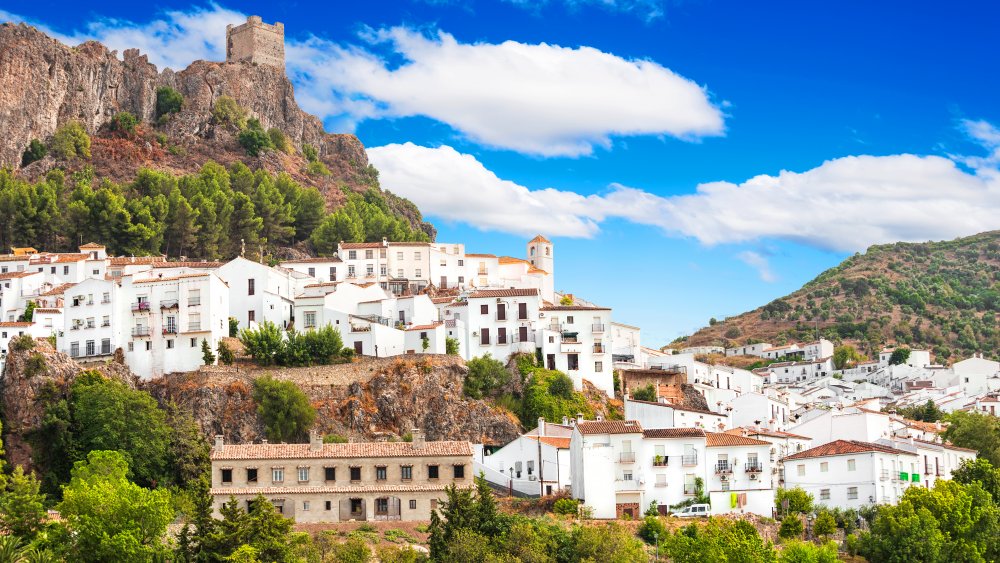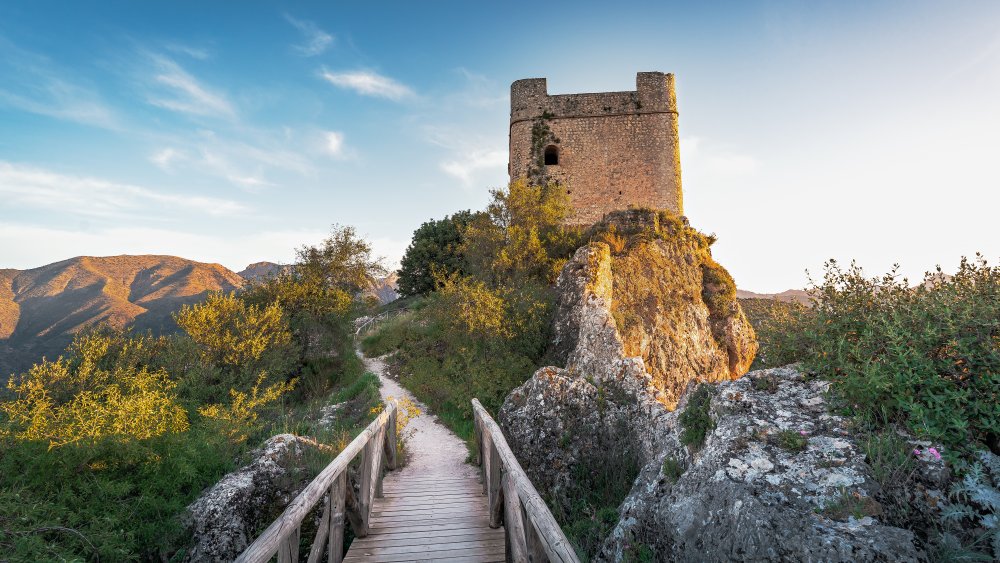The Real Reason This Town Doesn't Have A Single Case Of Coronavirus
As of this writing, the Johns Hopkins Coronavirus Resource Center lists roughly 1,188,000 confirmed cases of the COVID-19 coronavirus worldwide. The United States has seen a surge in cases, exceeding 300,000 on April 4. Business Insider reports that in New York City, the current epicenter of the pandemic, a Brooklyn hospital saw so many fatalities that a forklift had to transport the deceased to be stored in a refrigerated 18-wheeler. That's admittedly horrific, and probably not the most intuitive way to start an upbeat-sounding article, but reality shouldn't be ignored: it should be learned from. Footage of that grim scene was shared by vigilant citizens, including rapper Ice-T, to underscore the vital importance of social distancing.
Across the pond in Europe, Spain surpassed Italy's COVID-19 total on April 3, according to Reuters. In response to the spike in cases, Spain, which entered lockdown on March 14, per ABC, is now seeking to extend its state of emergency from the initial April 11 end date to April 26 in hopes that prolonged social isolation will mitigate transmissions. That certainly seems to have worked in the Spanish town of Zahara de la Sierra, which CNN reports had no documented cases of the novel coronavirus, as of April 3.
Coming together to stay apart
It's important to emphasize that not having any known cases doesn't necessarily reflect the true number of cases a place may have. There is, inherently, an epistemic gap, because you can't detect what you don't test. For instance, in Washington state, the the novel coronavirus may have spread unnoticed for weeks before the first official detection, per the Washington Post. Even with that caveat, there's reason to believe that Zahara de la Sierra has zero — or at least nearly zero — COVID-19 cases.
CNN describes the tiny Spanish town of 1,400 as a fortress and on March 14, it lived up to that description. From the moment that Spain declared its state of emergency, Zahara de la Sierra sealed off four of its five entrances. Vehicles pass through disinfection checkpoints, increasing the chances that pathogens are eradicated before they can wreak havoc on some unsuspecting immune system. A paid crew of ten people disinfect streets, plazas, and other hubs of public activity daily. One business even paid a pair of women to deliver groceries and medical supplies to people, to reduce the number of shoppers who are out and about.
In other words, during this trying time, they've taken social distancing guidelines as more than just suggestions, but words to live by.

